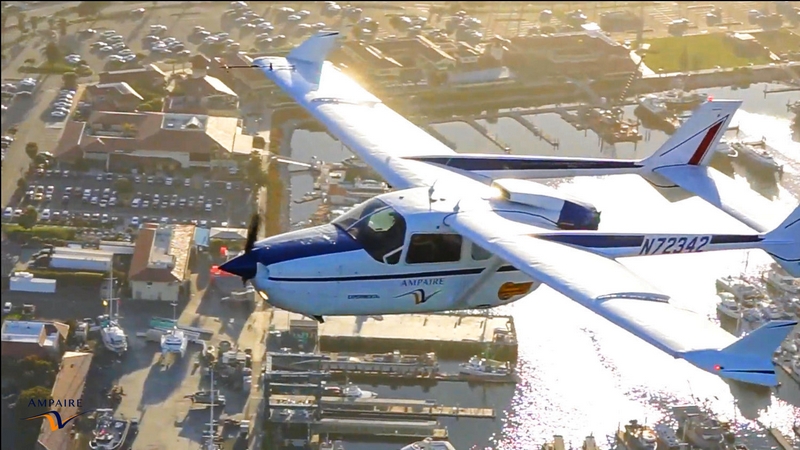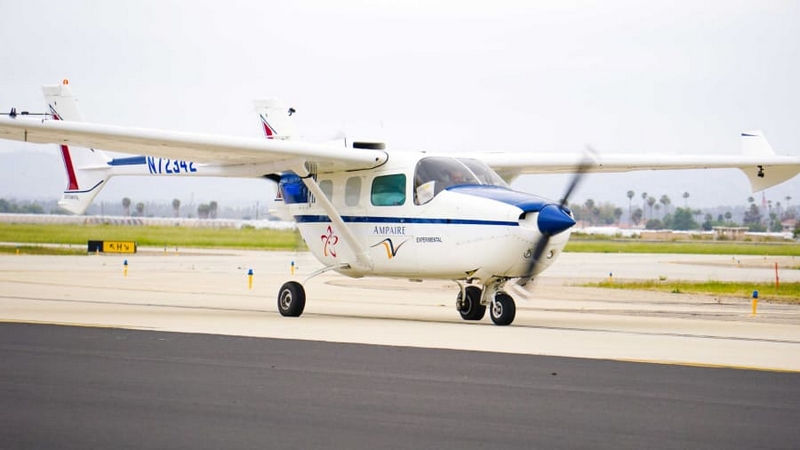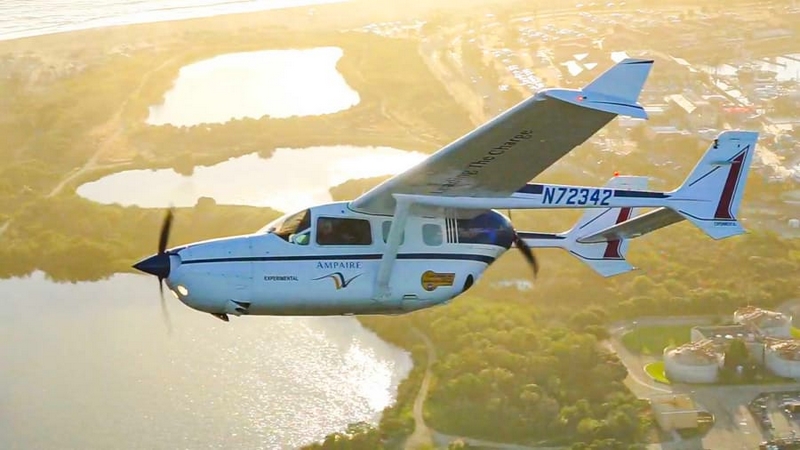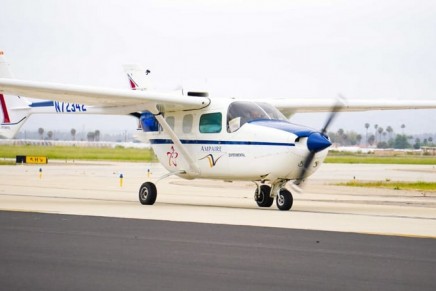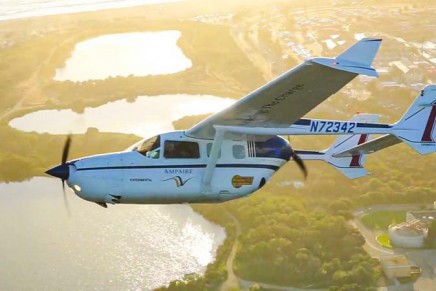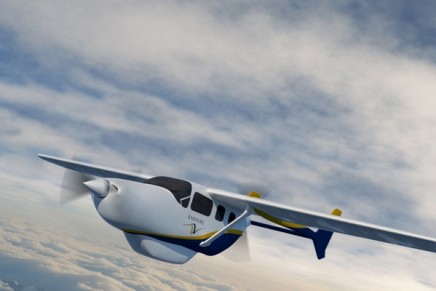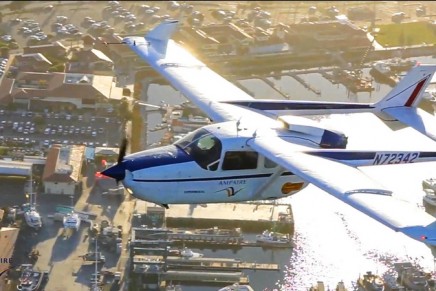The EEL by Hawthorne-based Ampaire, a pioneer in practical applications of electric power for aviation, is a retrofit of a Cessna 337 and has a conventional combustion engine plus an electric motor/battery pack drivetrain. The aviation company already has more than a dozen letters of interest from regional airlines and charter providers.
“The Ampaire Electric EEL is the first step in bringing lower emissions, lower operating costs, and quieter operations to general aviation through electrification,” according to the company’s CEO Kevin Noertker. “The original Cessna 337 provided great utility, and this hybrid electric conversion retains those advantages while reducing fuel cost and maintenance by about 50 percent.”
The EEL aircraft made its first test flight in June and is in the process of systems evaluation and envelope expansion. It has made flights of more than one hour’s duration and demonstrated single-engine climb on each powerplant. The test program will last about 30 months, with additional propulsion configurations tested, culminating in STC certification by the end of 2021.
Customers will be offered two versions. The first will include an avgas-burning Continental IO-550 310 hp piston engine and a 215 hp (160 kW) electric propulsion system. The second will include a Continental CD-300 Jet A diesel 300 hp engine and the same 215 hp (160 kW) electric system.
The aviation company will offer pressurized and unpressurized versions of the aircraft. Winglets and STOL kit are standard. The interior can be equipped with four or six seats. The aircraft will be cost competitive with comparable current production piston twins.
“This is something new and exciting in general aviation—twin-engine redundancy and performance on as little as 10 gallons per hour in cruise flight,” said Noertker. “Plus the opportunity to reduce your environmental footprint and still enjoy the freedom and flexibility to fly as you wish. We look forward to engaging with pilots at Oshkosh about this groundbreaking aircraft.”
According to Ampaire, its Electric EEL will enter flight trials on commercial routes with Mokulele Airlines in Hawaii later this year, a partnership enabled by a Hawaii-based startup accelerator, Elemental Excelerator. FAA certification of the Electric EEL is projected for 2021
“The most practical way to achieve an all-electric future is to jump start the market with a partially-electric present,” added Noertker. “We’re pursuing a pragmatic, step-by-step approach, a scalable plan to quickly commercialize and expand the electric airplane market. This approach recognizes that other development programs for clean-sheet all-electric aircraft will consume hundreds of millions of dollars in R&D and potentially require a decade or more to certify.
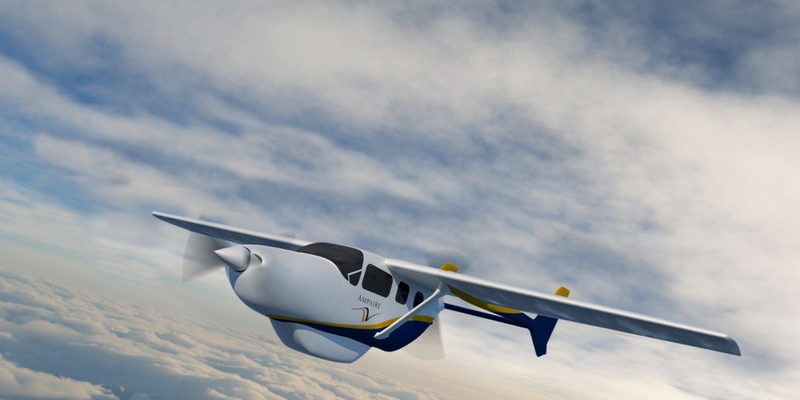
Ampaire aircraft ; @ampaire.com

